ETC.: False Friends
4. 10.–12. 10. 2025
Fotograf.Zone Festival, Petrohradská Kolektiv, Jedna Dva Tři Gallery, Prague, Czechia
Artists: Jaka Teršek, Saša Tatić, Sara Perović, Eva Bevec
All photos by Klára Kudláček
Language shapes our world, influences our thoughts, and reflects our societies. In the context of the Balkans, specifically former Yugoslavia, a region marked by shared histories and divergent narratives, language can both include and exclude. Through the concept of “false friends”, words that appear similar but differ in meaning, this exhibition explores how identity, politics, and cultural memory echo in the language we use, and vice versa. Simply put, we often speak of what we believe are the same notions, not realising we understand them differently. These deceptively familiar terms thus become symbols of regional complexities, miscommunications, and broader cultural and historical tensions.

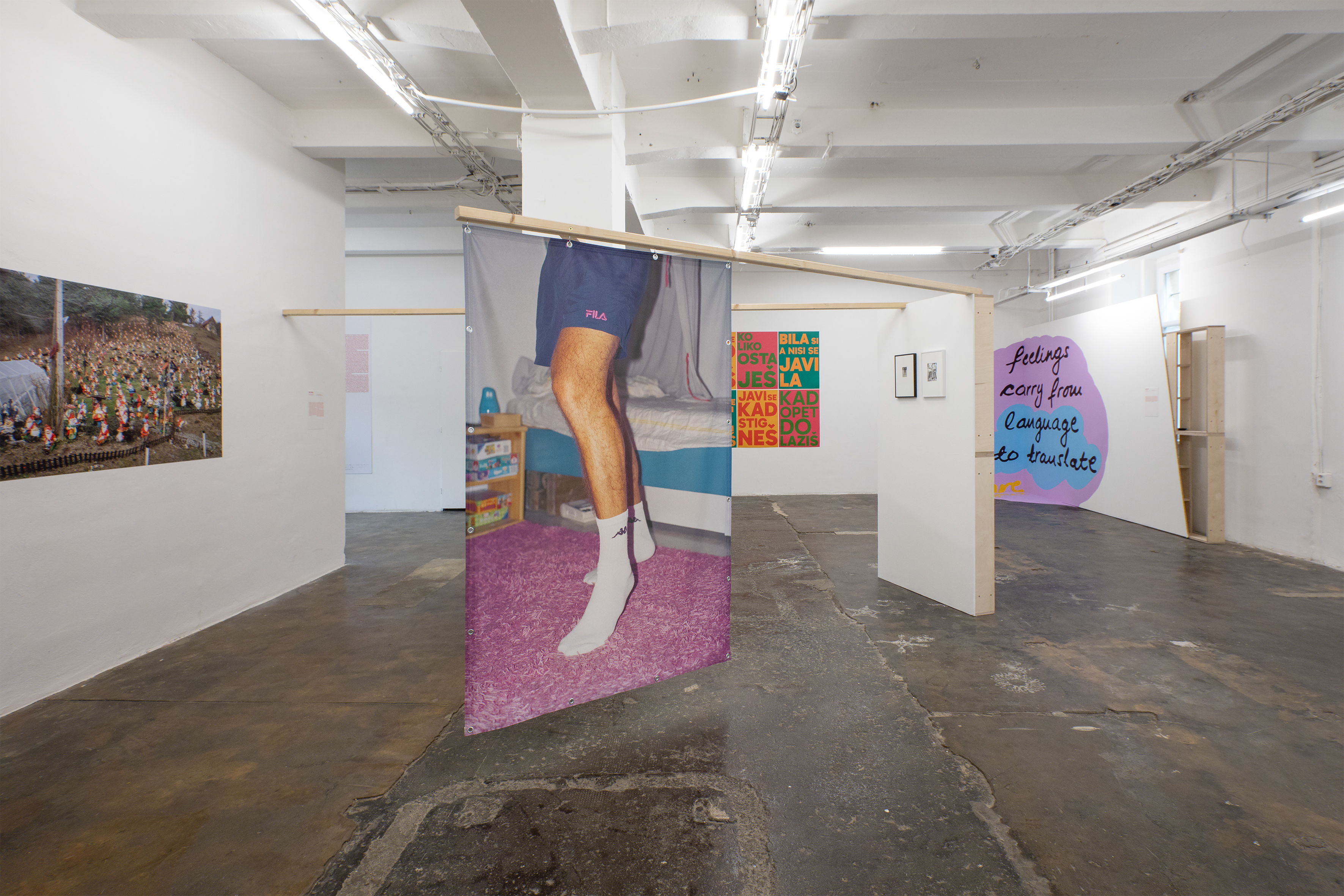
Eva Bevec’s projects, Yugonostalgia and In Search for Yugoslavia, explore the phenomenon of longing for a country that no longer exists. Through archival images and memorabilia, she explores both the unity it represented and the social values it embraced and promoted. For Bevec, the centre of the work revolves around the role of memory and sentimentality in understanding a political project and lived experience she herself has never had. Born in the aftermath of Yugoslavia’s disintegration and into a different political system, she and her peers find that much has been lost in the transition. Unlike their parents and grandparents, the generations born in the nineties suddenly found themselves in a new, capitalist system, where previously unalienable rights proved to be precarious and standing up for the common good is a daily struggle.

In the work of Saša Tatić, the wake of a new post-Yugoslav reality is reflected in migration – something she, along with many other Bosnians (both those who left and those who stayed), has personally experienced. These comings and goings make for a shared experience of impermanence, of constant returning but never remaining. The bitter-sweet ideas of home and togetherness become something that constantly changes, as well as a source for misunderstandings in communicating both sides of the migrant experience. Her series of quotes and phrases often used in the Balkans reflects these conflicting emotions and expectations, as well as comments on language as something that has the potential to both ground and uproot.
![]()
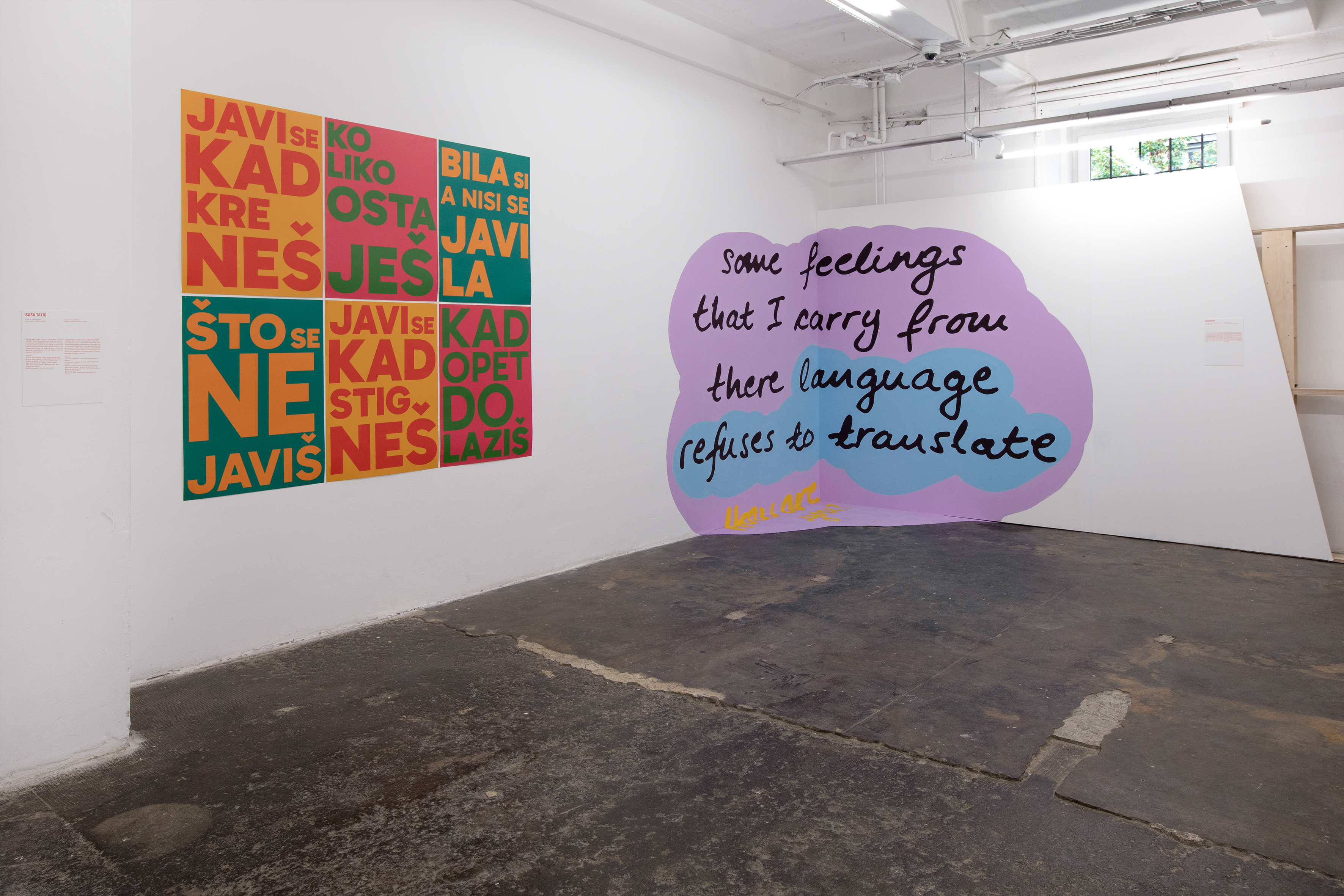
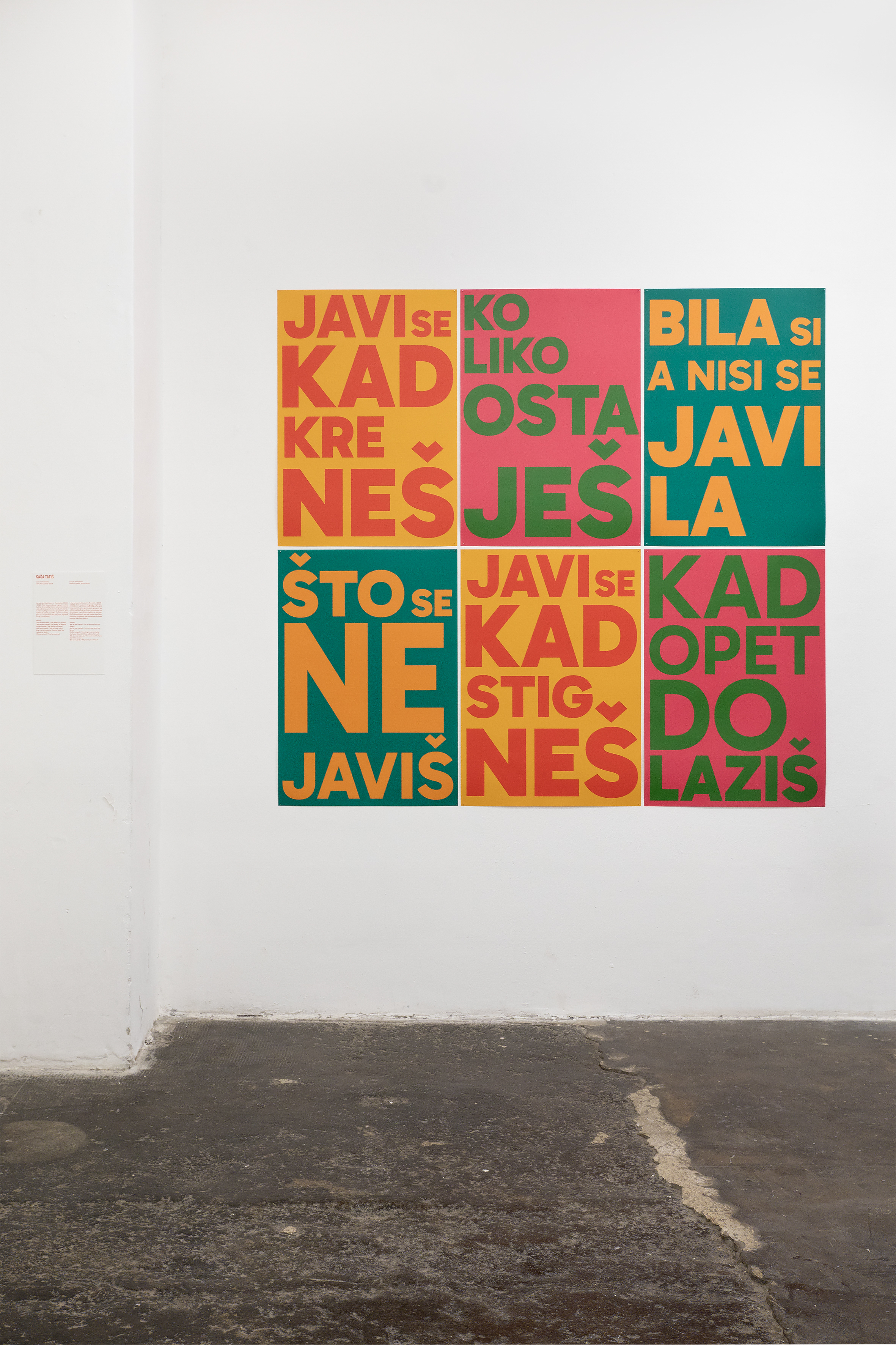
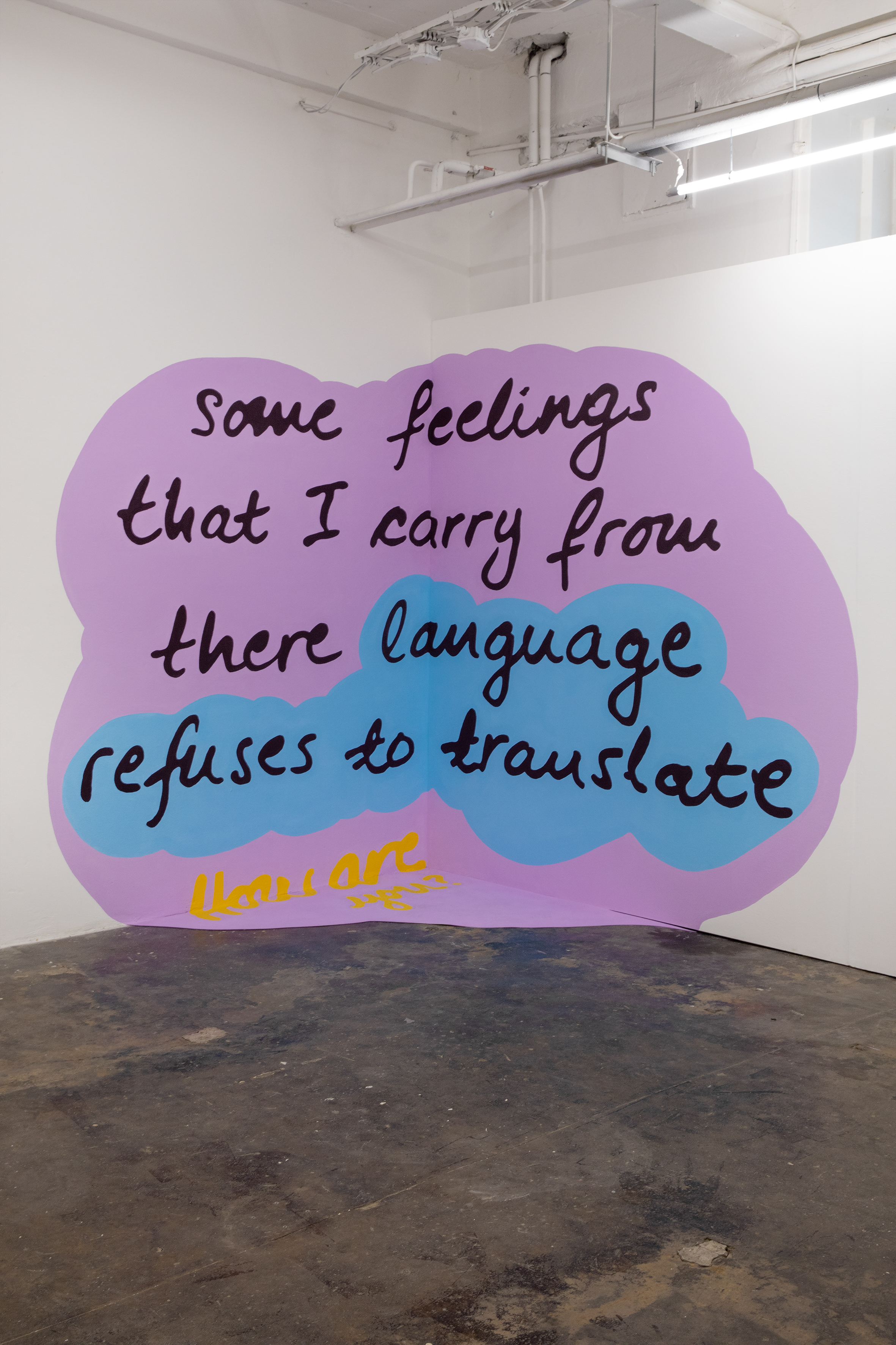

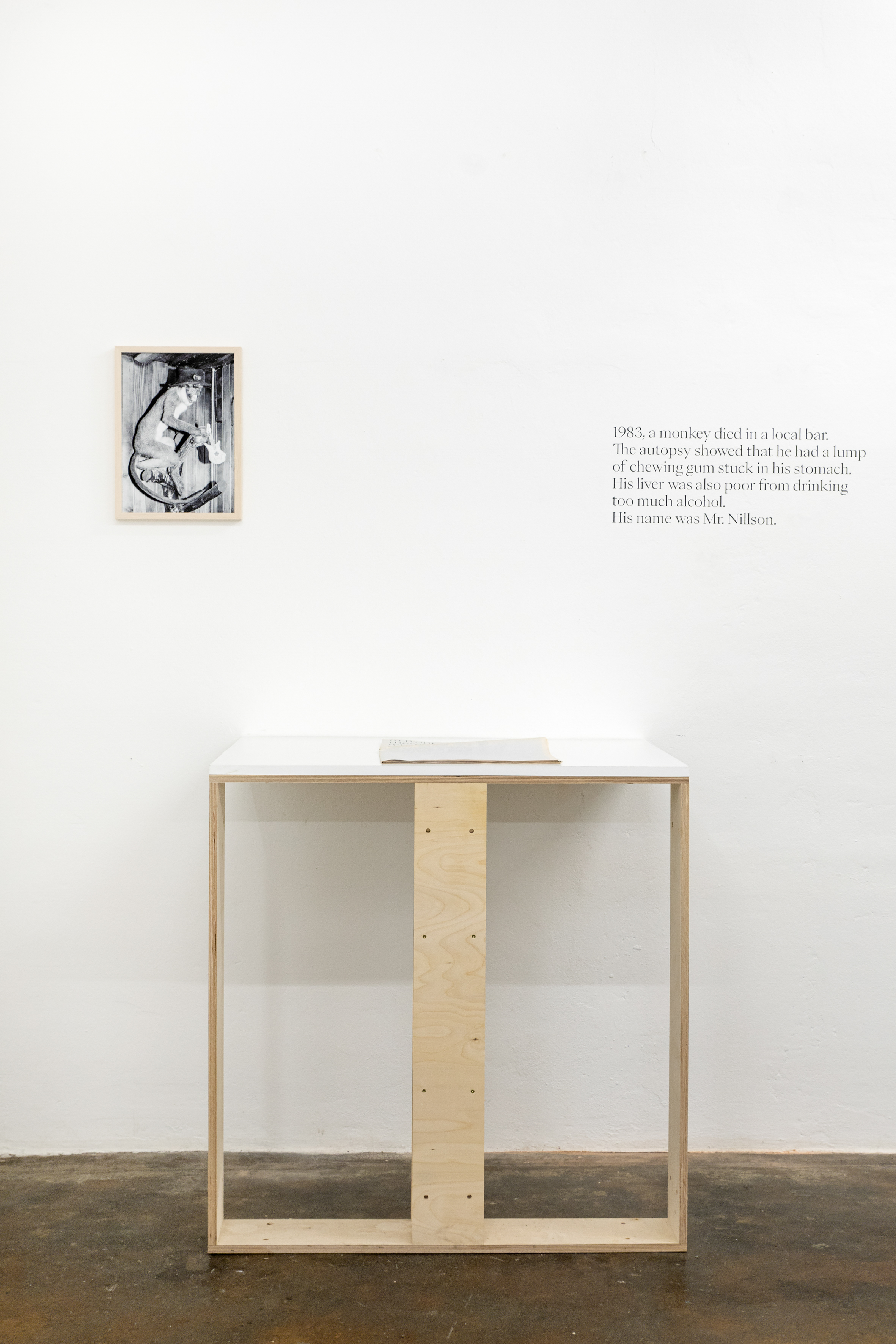
For Jaka Teršek, the meaning of home is shaped less by geography than by the cultural environment to which one belongs – or ceases to belong – to. In his project, he revisits the places tied to his childhood memories in eastern Slovenia. The photographs he takes of once familiar places are partly recollections, partly reinterpretations, connecting images with stories, superstitions and accounts of local life. By attempting to observe a once-familiar environment objectively, he creates a kind of bridge between the past and the present, weaving together a distant and more immediate perception of a personal geography, one rooted in fact as well as fiction.
![]()
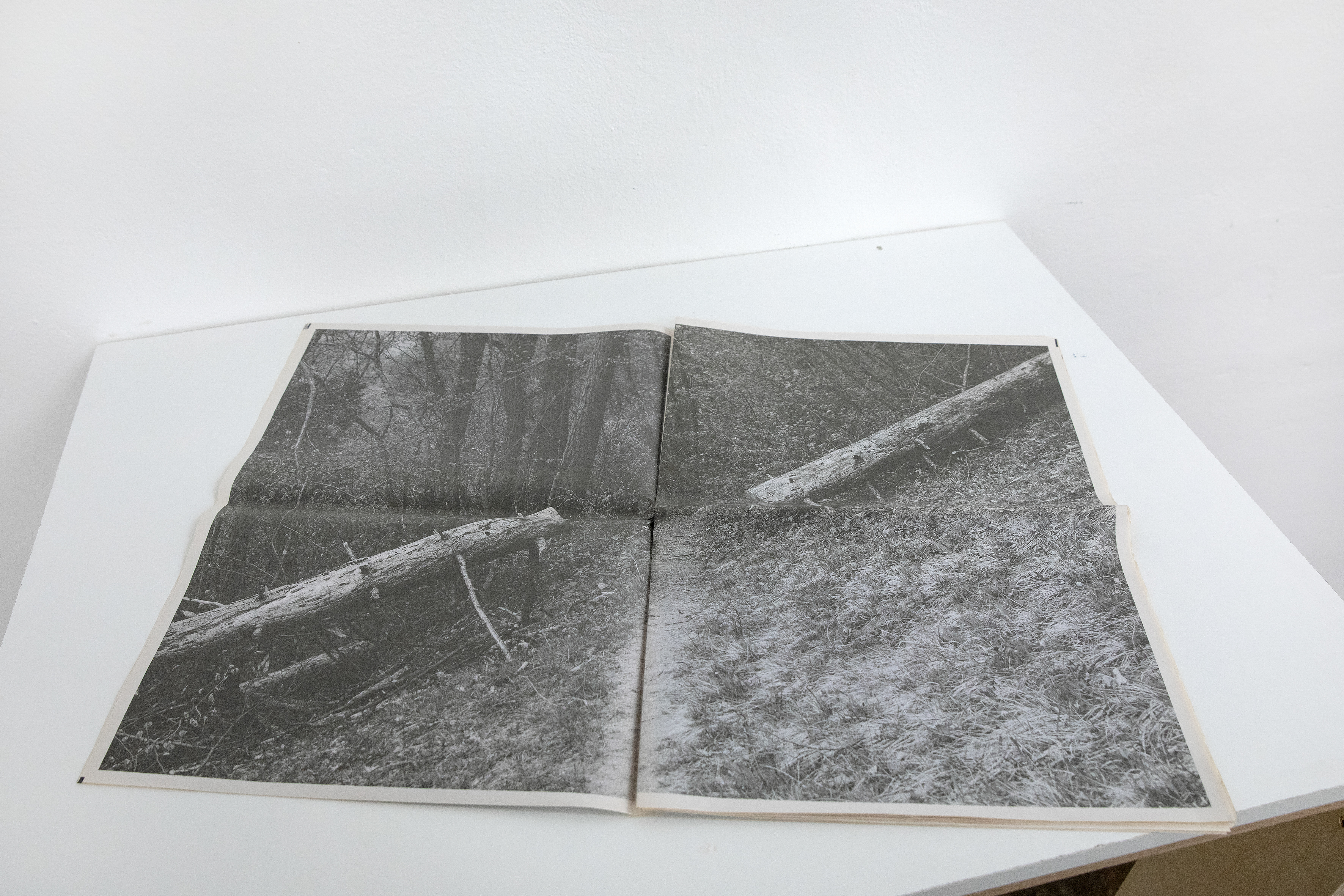
Similarly, Sara Perović connects the past and the present with a simple image of a tennis player’s legs – a personal deep-dive into a family archive that simultaneously becomes a cultural exploration. Her mother fell in love with her father because of his legs, she told her. This intimate detail made her focus on the legs of tennis players – primarily her dad’s in family photographs from the 1980s Pula, but then multiplying the motif in the present day, recreating the movements with her own partner. Repeating the memory and recreating the context becomes an obsession, an intimate ritual of reconciling the past with the present experience. In this way, the simple motif of male legs becomes a carrier of multiple meanings, exploring her heritage, her current relationships and her status as a photographer objectifying the subject. Her memory thus becomes part of a wider whole, at once personal and objective.


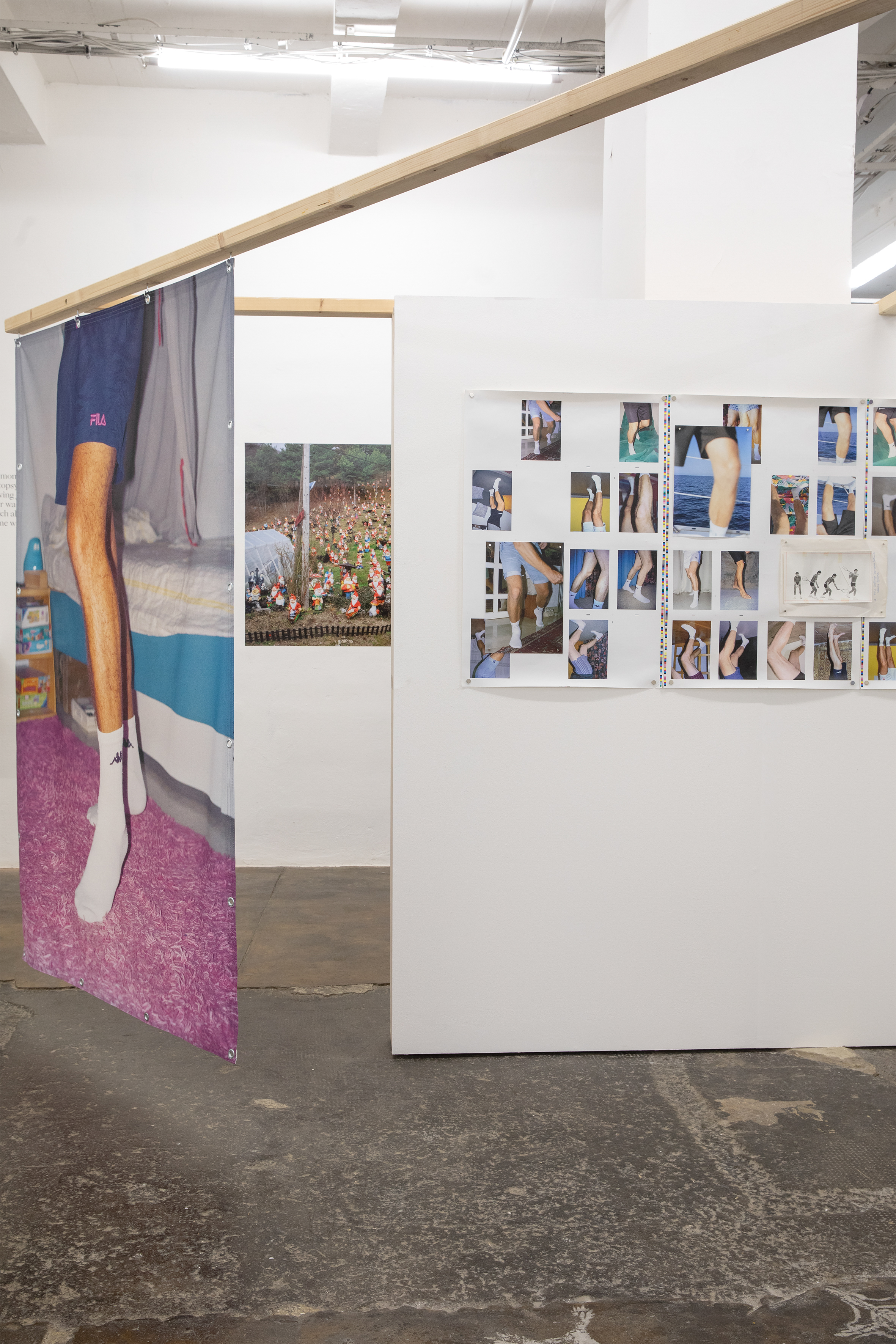
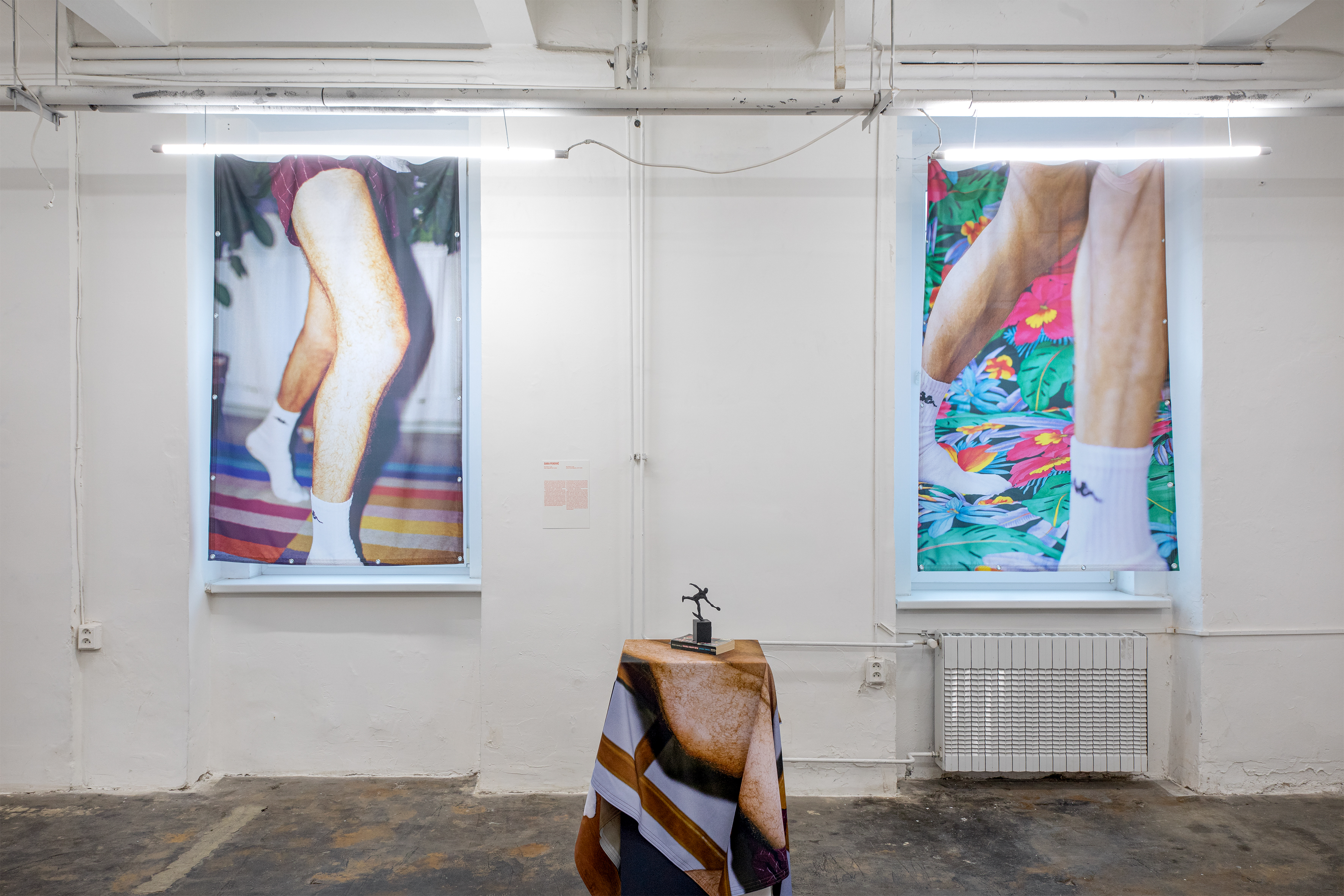
Through the metaphor of false friends, the exhibition investigates how language and image interact, interchange, and convey meaning on multiple levels. Whether through political discourse, everyday speech, or inherited idioms, both language and images act as mechanisms of power, while also framing and (re)shaping our innermost understanding of the world. Artists reflect on how language is internalised, how meanings shift across borders, and how the passing of time can challenge once-fixed narratives. In doing so, the exhibition is a meditation on how we speak about identity and memory, and how words and ideas – at once shared and misunderstood – shape our place within a contested past and a shifting present.
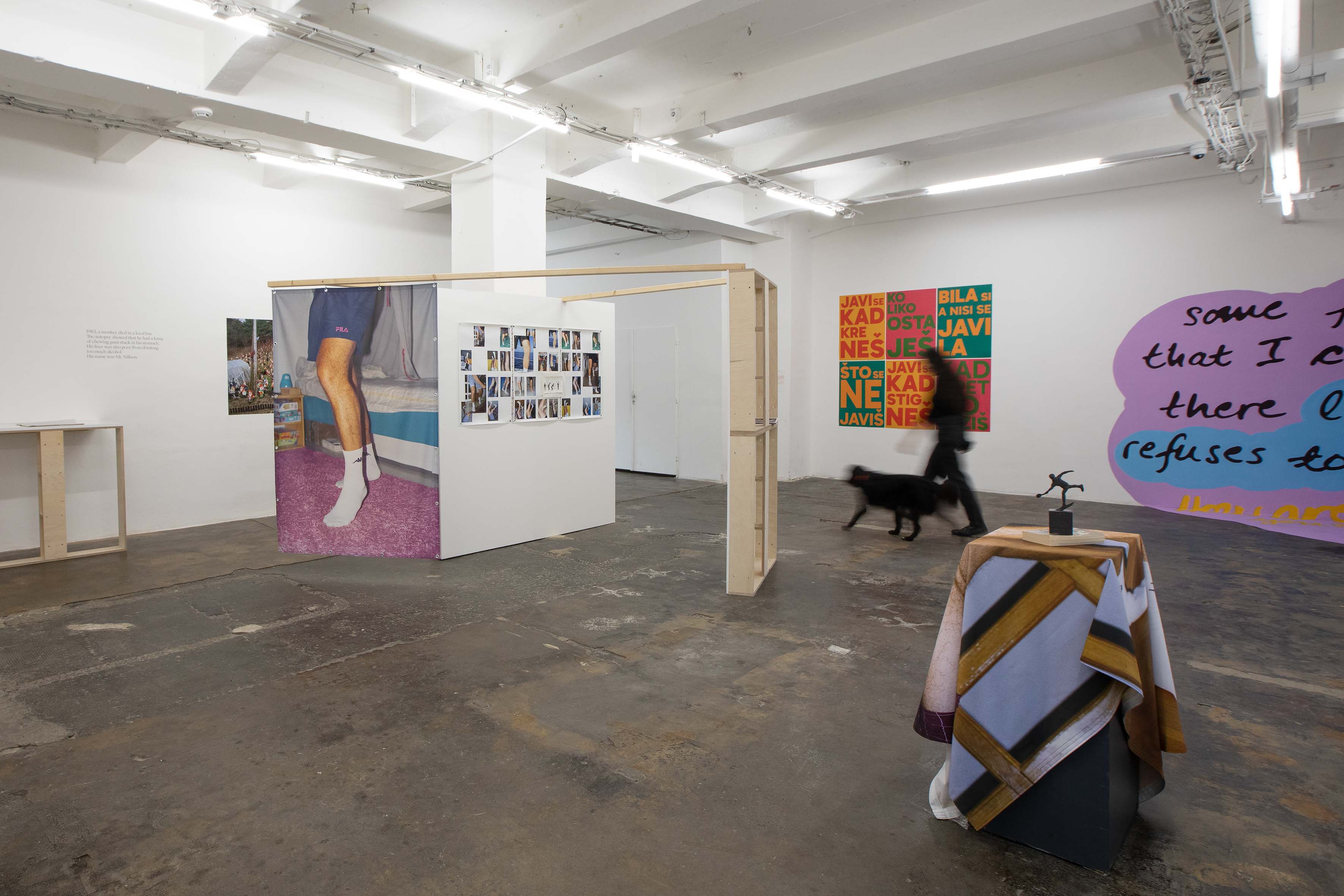
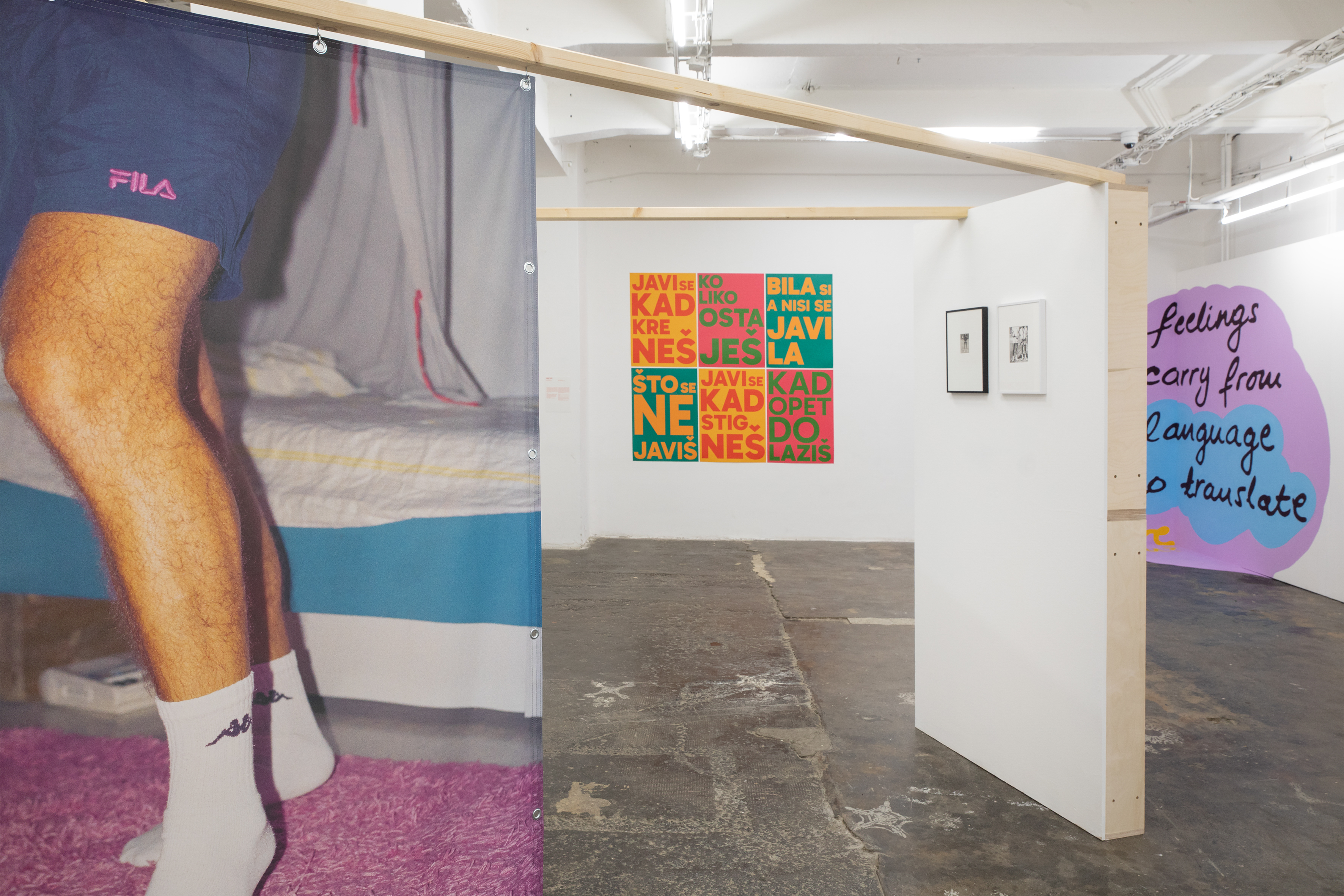
Curated by: ETC.
Exhibition Design: Ondřej Čech
The exhibition is supported by the Ministry of Culture of the Republic of Slovenia, City of Ljubljana, Embassy of The Republic of Slovenia in Prague.
Exhibition Design: Ondřej Čech
The exhibition is supported by the Ministry of Culture of the Republic of Slovenia, City of Ljubljana, Embassy of The Republic of Slovenia in Prague.
Etc. is a annual magazine, dedicated to showcasing current artistic production from the Baltic to the Balkans.
Based in Ljubljana, Slovenia, each issue is dedicated to a relevant topic in art and life. Founded to promote emerging artists, its goal is to initiate a dialogue, inspire collaborations, and challenge set views.